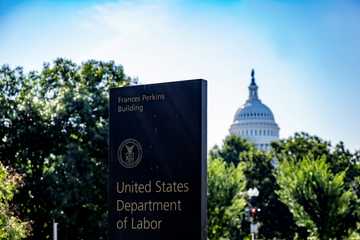Job Scams Surge: AI and Tough Market Create Perfect Storm for Employment Fraud
In an increasingly challenging job market, employment-related scams have reached alarming levels, leaving job seekers vulnerable to sophisticated fraudsters armed with artificial intelligence tools. Recent victims include professionals like Nicole Becker, who endured a deceptive two-week recruitment process only to discover she had been targeted by scammers.
Becker, a 37-year-old Oregon resident, appeared to have landed a promising position as a global communications lead with what seemed to be a Chinese sportswear brand in July. The scammers orchestrated an elaborate charade, complete with multiple interviews, detailed PowerPoint presentations, and formal offer letters.
The scheme unraveled during the onboarding process when fraudsters claimed their servers were destroyed in California wildfires, requesting Becker purchase equipment from specific vendors with a promise of reimbursement. “That’s when my heart sank and I was like, ‘oh no, I fell for a fake job,'” Becker told AFP, speaking under a pseudonym.
The scale of these scams is staggering. McAfee reports a shocking 1,000 percent increase in employment-related fraud between May and July, coinciding with graduation season. Nearly one-third of Americans have received fraudulent job offers via text message, with victims losing an average of $1,471 per scam. Total fraud losses reached $12 billion last year, marking a 21 percent increase from the previous year.
Lisa Plaggemier, executive director of the National Cybersecurity Alliance, describes the current situation as a “perfect storm,” where fewer job opportunities and advanced AI tools enable scammers to create highly convincing fake listings and recruiter profiles.
The Federal Trade Commission has specifically warned about fake check scams, where fraudsters send counterfeit checks for equipment purchases through selected vendors. Meanwhile, employers face their own challenges, with the FBI warning about North Korean scammers seeking fraudulent employment to access U.S. company networks.
The rise of AI has further complicated the hiring landscape. Gartner’s survey of 3,000 job candidates revealed that 6 percent admitted to interview fraud, either through impersonation or using stand-ins. The firm projects that by 2028, one in four candidate profiles worldwide will be fraudulent.
In response to these threats, many companies are reverting to traditional face-to-face interviews despite initially embracing AI-driven hiring processes. As Gartner’s Jamie Kohn notes, these scams pose significant cybersecurity risks that extend far beyond making poor hiring decisions.







Leave a Comment